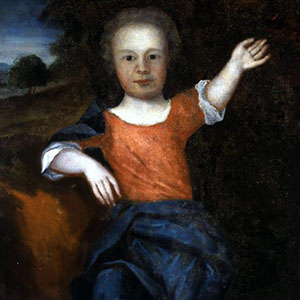Benjamin Franklin’s son Francis lived for only four years but had a profound impact on his father’s life. After Francis died from small pox, Franklin became a vocal supporter of inoculation.
Early Life
Francis Folger Franklin was born to Franklin and Deborah Read on October 20, 1732, in Philadelphia, Pennsylvania. Called “Franky” by his parents, Francis was described as a “precocious, curious and special” child. Tragically, Francis died in 1736 at the age of four after contracting small pox. His tombstone read: “The delight of all who knew him.”
Small Pox Inoculation
Franklin and his wife Deborah had planned to inoculate their son after he recovered from another illness. However, they never had a chance to do so.
Inoculation had become more commonplace after successfully containing a large outbreak in Boston in 1721. However, it remained controversial. At the time, inoculation involved deliberately exposing the person to smallpox via a small incision. In most cases, a healthy person had a higher likelihood of surviving the infection than if they had naturally contracted the virus.
In his autobiography, Franklin expressed his regret for not inoculating Francis:
In 1736 I lost one of my sons, a fine boy of four years old, by the smallpox taken in the common way. I long regretted bitterly and still regret that I had not given it to him by inoculation. This I mention for the sake of the parents who omit that operation, on the supposition that they should never forgive themselves if a child died under it; my example showing that the regret may be the same either way, and that, therefore, the safer should be chosen.
Following the death of his son, Franklin became a vocal advocate for inoculation. Working with medical doctors at Pennsylvania Hospital, Franklin studied the science behind inoculation and published several studies highlighting its usefulness. In 1774, he founded the Society for Inoculating the Poor Gratis, which aided Philadelphia’s poor in obtaining inoculations.









